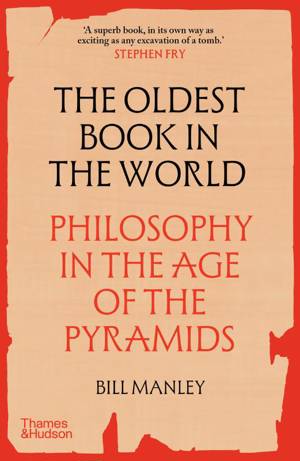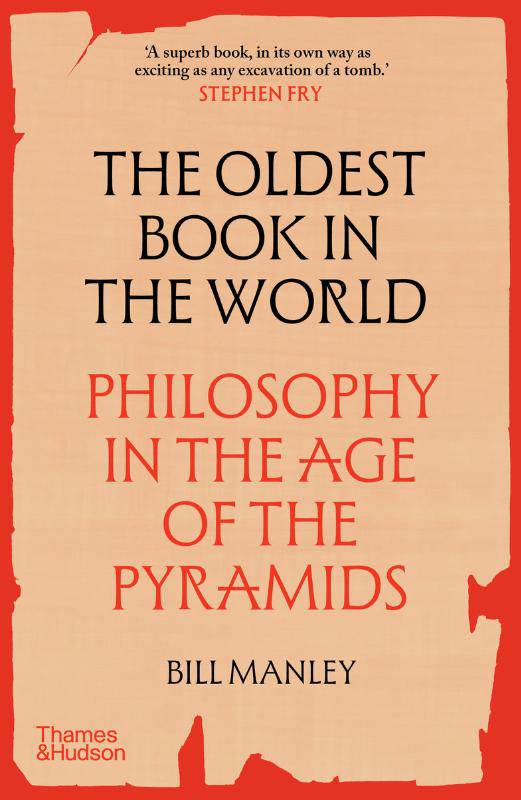
- Afhalen na 1 uur in een winkel met voorraad
- Gratis thuislevering in België vanaf € 30
- Ruim aanbod met 7 miljoen producten
- Afhalen na 1 uur in een winkel met voorraad
- Gratis thuislevering in België vanaf € 30
- Ruim aanbod met 7 miljoen producten
Zoeken
€ 18,45
+ 36 punten
Uitvoering
Omschrijving
A brand-new translation of a philosophical classic of the ancient world, The Teaching of Ptahhatp, written in Egypt 4,000 years ago.
The Teaching of Ptahhatp, composed two millennia before the birth of Plato, is the oldest surviving statement of philosophy in the ancient world and the earliest witness to the power of the written word. It ought to begin the list of the world’s philosophy classics, yet it has been largely forgotten since it was rediscovered in the nineteenth century. Egyptologist Bill Manley’s new translation corrects this oversight, rendering into approachable modern English for the first time Ptahhatp’s profound yet practical account of ‘the meaning of life’, written many centuries before the supposed dawn of western philosophy.
Manley introduces Ptahhatp, who served as Vizier to the Old Kingdom pharaoh Izezi (c. 2410–2375 BC), and the world of dynamic ideas and new technologies – writing among them – within which he worked, illuminating the nuances of his language and philosophy. In addition, Manley’s new translation of Why Things Happen, the oldest surviving account of creation from anywhere in the world, reveals how Ptahhatp’s account of the human condition is founded in distinctive ancient Egyptian beliefs about the nature of truth and reality. Taken together, Manley’s new translations and expert commentary provide a new perspective on the Pyramid Age and overturn traditional prejudices about the origins of writing and philosophy. The ‘oldest book in the world’ is a testament to a common thread that connects humanity across time; Ptahhatp grapples with the pitfalls of greed, ambition, celebrity, success, confrontation, friendship, sex and even the office environment, and his teachings remain remarkably relevant in the modern day.
The Teaching of Ptahhatp, composed two millennia before the birth of Plato, is the oldest surviving statement of philosophy in the ancient world and the earliest witness to the power of the written word. It ought to begin the list of the world’s philosophy classics, yet it has been largely forgotten since it was rediscovered in the nineteenth century. Egyptologist Bill Manley’s new translation corrects this oversight, rendering into approachable modern English for the first time Ptahhatp’s profound yet practical account of ‘the meaning of life’, written many centuries before the supposed dawn of western philosophy.
Manley introduces Ptahhatp, who served as Vizier to the Old Kingdom pharaoh Izezi (c. 2410–2375 BC), and the world of dynamic ideas and new technologies – writing among them – within which he worked, illuminating the nuances of his language and philosophy. In addition, Manley’s new translation of Why Things Happen, the oldest surviving account of creation from anywhere in the world, reveals how Ptahhatp’s account of the human condition is founded in distinctive ancient Egyptian beliefs about the nature of truth and reality. Taken together, Manley’s new translations and expert commentary provide a new perspective on the Pyramid Age and overturn traditional prejudices about the origins of writing and philosophy. The ‘oldest book in the world’ is a testament to a common thread that connects humanity across time; Ptahhatp grapples with the pitfalls of greed, ambition, celebrity, success, confrontation, friendship, sex and even the office environment, and his teachings remain remarkably relevant in the modern day.
Specificaties
Betrokkenen
- Auteur(s):
- Uitgeverij:
Inhoud
- Aantal bladzijden:
- 240
- Taal:
- Engels
Eigenschappen
- Productcode (EAN):
- 9780500298077
- Verschijningsdatum:
- 18/07/2024
- Uitvoering:
- Paperback
- Afmetingen:
- 130 mm x 198 mm
- Gewicht:
- 274 g

Alleen bij Standaard Boekhandel
+ 36 punten op je klantenkaart van Standaard Boekhandel
Beoordelingen
We publiceren alleen reviews die voldoen aan de voorwaarden voor reviews. Bekijk onze voorwaarden voor reviews.








